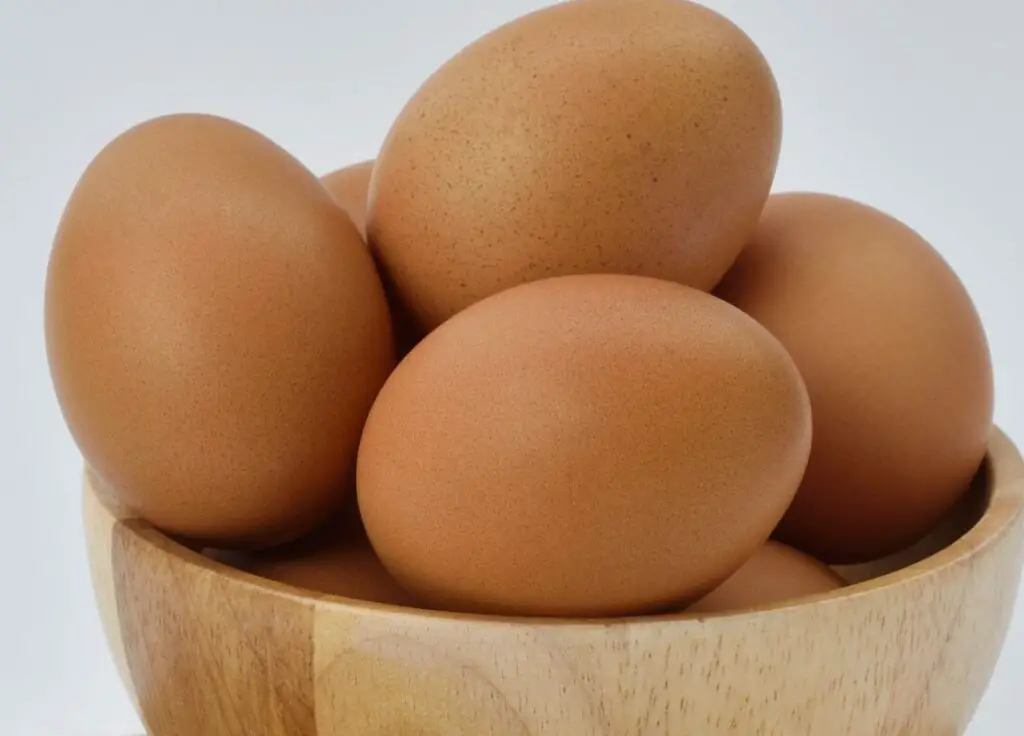Eggs are a widely consumed food worldwide, known for their high protein content, essential vitamins, and minerals. However, when it comes to fiber, eggs are not the first food that comes to mind. Fiber is a crucial nutrient for maintaining good health and digestion, and it’s important to know how much fiber is present in our daily diet. In this article, we will discuss whether eggs are high in fiber or not.

What is Fiber?
Fiber is a type of carbohydrate that cannot be digested by the human body. It’s present in plant-based foods such as fruits, vegetables, whole grains, legumes, and nuts. Fiber is divided into two types: soluble and insoluble fiber. Soluble fiber dissolves in water and forms a gel-like substance that slows down digestion and helps to regulate blood sugar levels. Insoluble fiber, on the other hand, doesn’t dissolve in water and helps to add bulk to the stool, preventing constipation.
The Recommended Daily Fiber Intake
According to the American Heart Association, adults should consume at least 25-30 grams of fiber per day. However, studies have shown that most people do not meet this daily requirement, with the average American consuming only 16 grams of fiber per day.
Are eggs high in fiber?
Eggs are not high in fiber, as they contain no dietary fiber. The nutritional value of eggs comes from their high protein content and essential vitamins and minerals, such as vitamin B12, vitamin D, and iron. The egg yolk contains most of the egg’s vitamins and minerals, while the egg white is mostly protein.
Eggs do not contain fiber because they are derived from animals rather than plants. Fiber is only present in plant-based foods such as fruits, vegetables, whole grains, legumes, and nuts. However, you can increase the fiber content of an egg-based meal by pairing it with high-fiber foods such as whole grain bread, fruits, and vegetables.
How to increase fiber intake?
If you’re looking to increase your daily fiber intake, here are some high-fiber plant-based foods to include in your diet:
- Fruits: Fruits such as raspberries, blackberries, pears, and apples are high in fiber. One medium apple contains 4 grams of fiber, while one cup of raspberries contains 8 grams of fiber.
- Vegetables: Vegetables such as broccoli, spinach, kale, and sweet potatoes are high in fiber. One cup of cooked broccoli contains 5 grams of fiber, while one medium sweet potato contains 4 grams of fiber.
- Whole grains: Whole grains such as brown rice, quinoa, and oats are high in fiber. One cup of cooked brown rice contains 4 grams of fiber, while one cup of cooked quinoa contains 5 grams of fiber.
- Legumes: Legumes such as lentils, chickpeas, and black beans are high in fiber. One cup of cooked lentils contains 16 grams of fiber, while one cup of cooked black beans contains 15 grams of fiber.
- Nuts and seeds: Nuts and seeds such as almonds, chia seeds, and flaxseeds are high in fiber. One ounce of almonds contains 3.5 grams of fiber, while one tablespoon of chia seeds contains 5 grams of fiber.
Benefits of fiber:
Including fiber-rich foods in your diet can provide numerous health benefits, such as:
- Improved Digestion: Fiber helps to promote regular bowel movements and prevent constipation. It also helps to maintain healthy gut bacteria and reduce the risk of gastrointestinal diseases.
- Weight Management: Fiber helps to promote feelings of fullness and reduce hunger, which can help to prevent overeating and promote weight loss.
